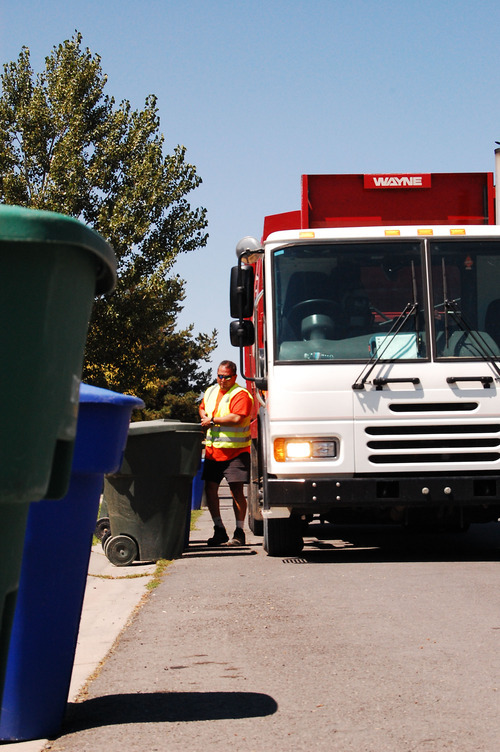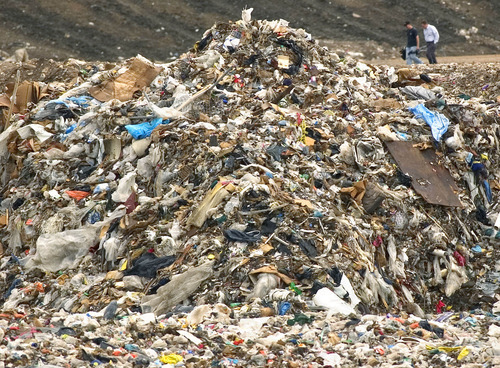This is an archived article that was published on sltrib.com in 2011, and information in the article may be outdated. It is provided only for personal research purposes and may not be reprinted.
The cost of garbage collection could go up in Salt Lake County.
The County Council voted Tuesday to charge commercial garbage trucks an additional $2 to dump at the Salt Lake Valley Landfill, starting July 1.
Without more money, officials say, the landfill could find itself operating in the red as early as 2012 — a financial reality brought about because of rising fuel costs and shrinking solid waste revenues.
Phil Bernal, the county's acting public works director, said the landfill's financial health depends on the increase, which would generate about $894,000 a year.
"We don't know where we could cut anymore," Bernal said.
Although homeowners wouldn't pay the higher tipping fee directly — only commercial trucks carrying household or construction waste would be charged — they would pay it indirectly. Officials say the average homeowner would pay an extra 32 cents a month or $3.84 a year.
Still, the proposed fee needs the approval of the Salt Lake City Council because the capital is co-owner of the landfill. That approval is pending.
The council, however, voted 5-1 in favor of the change. Councilman Richard Snel-grove cast the only no vote.
"I'm averse to a fee increase," he said, "particularly in this economic environment when taxpayers are having a tough time making a go at it."
This would mark the second straight year that the landfill has increased its tipping fees. Its rates rose $2 last year to cover, among other things, a health department fee for electronic waste recycling. Before that, the last tipping fee increase was in 1997.
Now here's the twist: Even if rates go up in July, homeowners may not see their bills go up until 2013.
Sanitation Director Pam Roberts will recommend next week that the county's sanitation district — which provides services to 80,000 homes in both unincorporated areas and in cities such as Taylorsville, Herriman, Holladay, Cottonwood Heights and a portion of Murray — absorb those costs until 2013.
The sanitation district's reserves, she said, are healthy enough to handle the expense.





